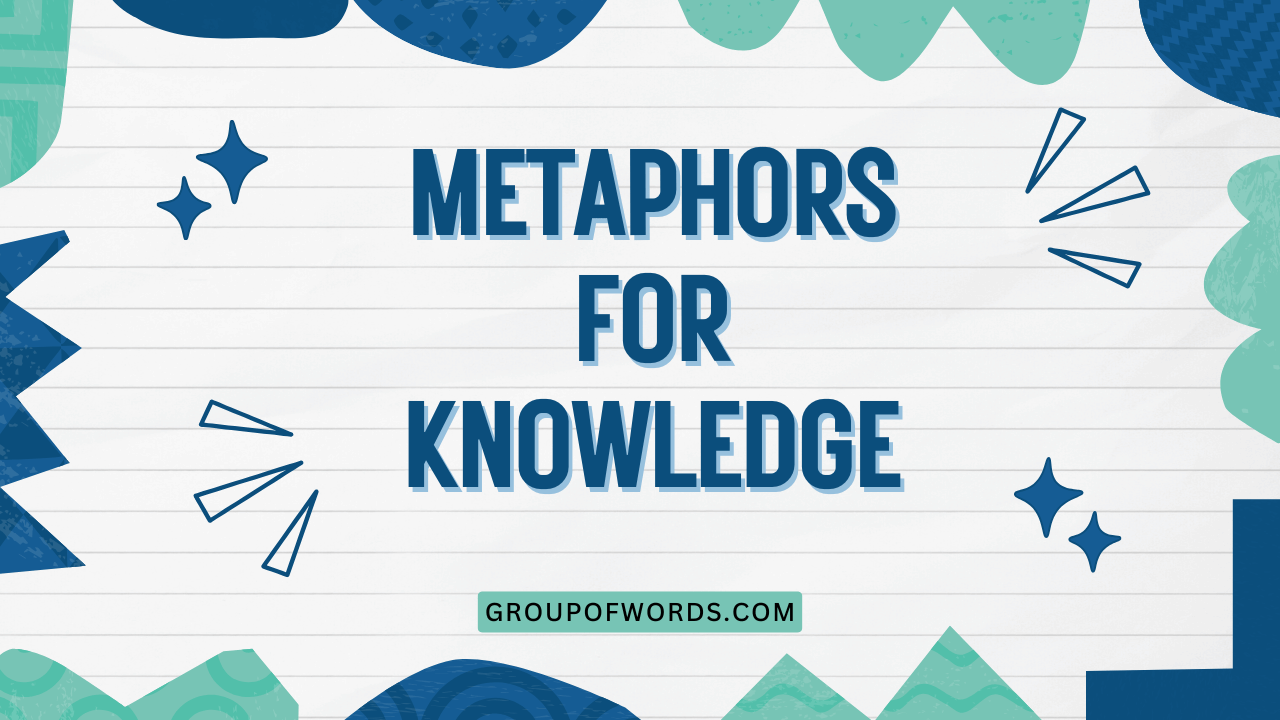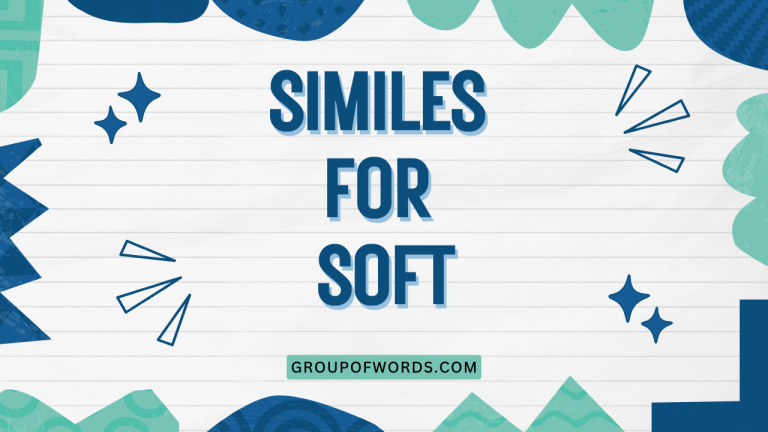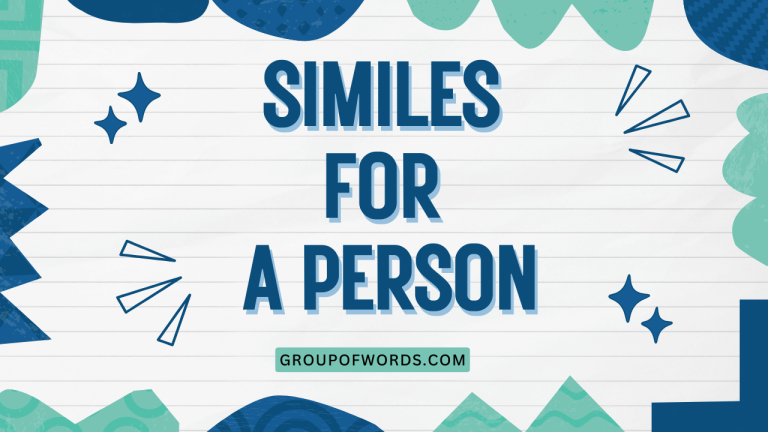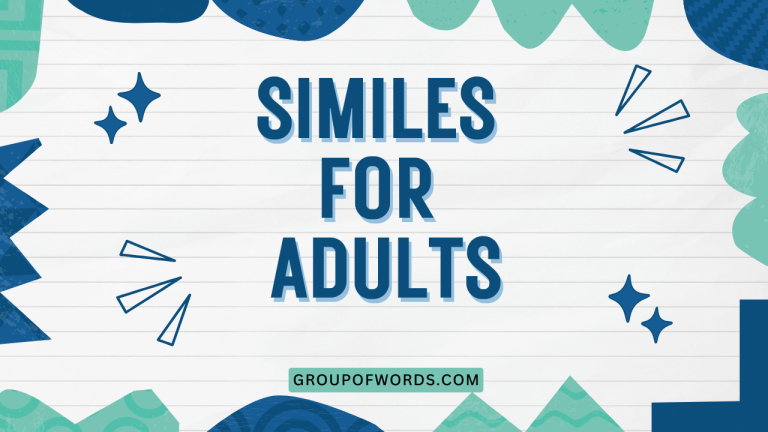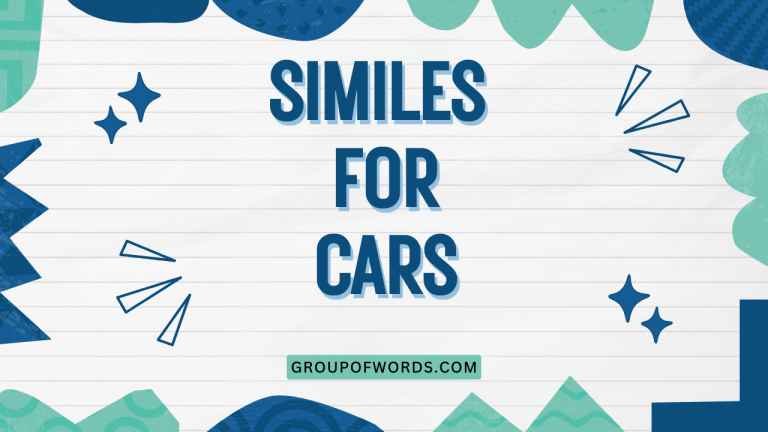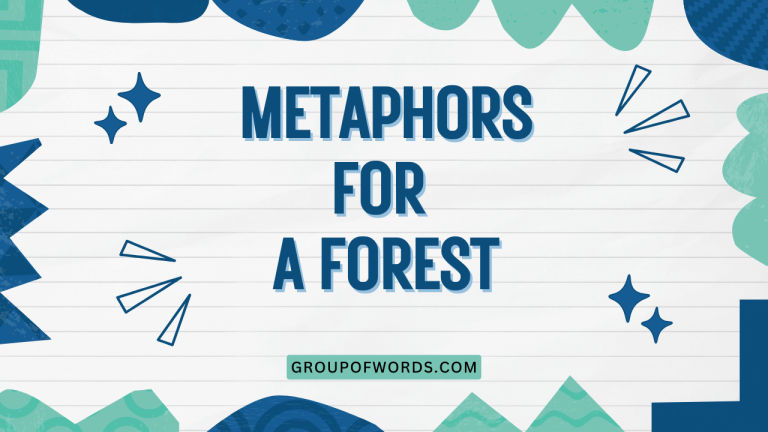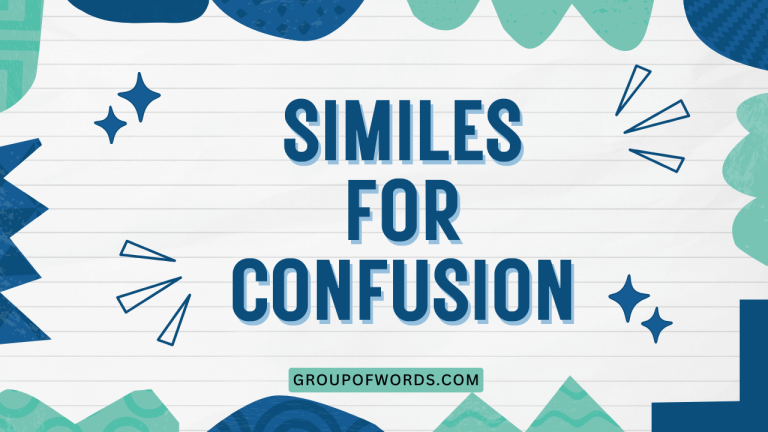Knowledge as Illumination: Exploring Metaphors for Understanding
Understanding how we talk about knowledge is crucial for effective communication and learning. Metaphors shape our perception of abstract concepts, and knowledge is no exception.
By examining the common metaphors used to describe knowledge, we can gain a deeper appreciation for how we learn, share, and apply information. This article will explore various metaphors for knowledge, providing examples and practical exercises to enhance your understanding of this fascinating linguistic phenomenon.
This exploration will benefit students, educators, writers, and anyone interested in improving their communication skills and understanding of cognitive processes.
This study of metaphors will give you the ability to better understand how others speak about and view knowledge. In understanding how others view knowledge, you will be able to better communicate your own views and ideas.
This skill will be beneficial across all aspects of your life both professionally and personally. Knowledge is the key to success, and this article will give you the knowledge to unlock your potential.
Table of Contents
- Definition: What are Metaphors for Knowledge?
- Structural Breakdown: Understanding the Components
- Types and Categories of Knowledge Metaphors
- Examples of Knowledge Metaphors
- Usage Rules: Applying Knowledge Metaphors Correctly
- Common Mistakes When Using Knowledge Metaphors
- Practice Exercises
- Advanced Topics: Extending Your Understanding
- Frequently Asked Questions
- Conclusion
Definition: What are Metaphors for Knowledge?
Metaphors for knowledge are figures of speech that use concrete concepts to describe the abstract idea of knowledge. These metaphors help us understand and communicate about knowledge by relating it to something more tangible and relatable.
They provide a framework for thinking about how we acquire, store, and use information. Metaphors are used to describe many different things, and knowledge is a very important one.
Without metaphors, it would be much more difficult to communicate about abstract ideas.
A metaphor essentially draws a comparison between two unlike things based on shared characteristics. When applied to knowledge, these comparisons illuminate different aspects of the learning process and the nature of understanding.
For instance, the common metaphor of “shedding light on a topic” suggests that knowledge clarifies and resolves confusion, much like light dispels darkness. This is just one example of the many ways we use metaphors to discuss knowledge.
These metaphors help us to understand the world around us, and they are essential for effective communication.
The function of knowledge metaphors extends beyond mere linguistic ornamentation. They actively shape our cognitive processes, influencing how we approach learning, problem-solving, and decision-making.
By framing knowledge in specific ways, these metaphors can either facilitate or hinder our understanding. Therefore, recognizing and critically evaluating the metaphors we use for knowledge is crucial for fostering more effective learning strategies and promoting intellectual growth.
The ability to recognize these metaphors will give you an advantage in your academic and professional life.
Structural Breakdown: Understanding the Components
Understanding the structure of knowledge metaphors involves recognizing the two key components: the source domain and the target domain. The source domain is the concrete concept used to describe the abstract concept of knowledge (the target domain). For example, in the metaphor “knowledge is a journey,” the source domain is “journey,” and the target domain is “knowledge.” The characteristics of the source domain are then mapped onto the target domain, allowing us to understand knowledge in terms of the familiar experience of a journey. This mapping process is what gives the metaphor its meaning and power. The journey metaphor suggests that gaining knowledge is a process that involves exploration, challenges, and ultimately, a destination.
This mapping process is not arbitrary; it relies on perceived similarities between the source and target domains. In the “knowledge is light” metaphor, the similarity lies in the ability of both light and knowledge to illuminate and clarify.
Light allows us to see things that were previously hidden in darkness, while knowledge allows us to understand concepts that were previously obscure or confusing. This shared characteristic of illumination is what makes the metaphor effective and meaningful.
The more similarities between the source and target domains, the more compelling and insightful the metaphor will be.
Furthermore, the effectiveness of a knowledge metaphor depends on its resonance with our experiences and cultural understanding. A metaphor that aligns with our existing beliefs and values is more likely to be accepted and internalized.
For instance, the metaphor of “building knowledge” resonates with the idea of constructing a solid foundation of understanding through incremental learning. This metaphor is particularly effective in educational contexts, where the emphasis is on building upon prior knowledge to achieve mastery.
The cultural context in which a metaphor is used can also influence its interpretation and impact. Therefore, it is important to be aware of the cultural nuances of knowledge metaphors to avoid misunderstandings and promote effective communication.
Types and Categories of Knowledge Metaphors
Knowledge metaphors can be broadly categorized based on the source domain they employ. Here are some common categories:
Knowledge as Light
This category uses light and related concepts (e.g., illumination, clarity, insight) to describe knowledge. It emphasizes the power of knowledge to dispel ignorance and reveal truth.
This is one of the most common and pervasive metaphors for knowledge, reflecting the fundamental human desire to understand the world around us.
Knowledge as Building
This category uses the construction of buildings or structures to represent the accumulation and organization of knowledge. It highlights the importance of a solid foundation and the incremental nature of learning.
This metaphor is particularly relevant in educational settings, where students are encouraged to build upon their existing knowledge base.
Knowledge as Possession
This category treats knowledge as something that can be owned, acquired, and stored. It emphasizes the value and utility of knowledge.
This metaphor reflects the competitive nature of many academic and professional environments, where knowledge is seen as a valuable asset.
Knowledge as Growth
This category uses the metaphor of plant growth to describe the development of knowledge. It emphasizes the organic and evolving nature of understanding.
This metaphor highlights the importance of nurturing and cultivating knowledge through continuous learning and exploration.
Knowledge as Container
This category views the mind as a container that can be filled with knowledge. It emphasizes the capacity of the human brain to store and process information.
This metaphor is often used in discussions of memory and learning capacity.
Knowledge as Landscape
This category compares knowledge to a landscape that can be explored and mapped. It emphasizes the interconnectedness of different areas of knowledge and the importance of exploration and discovery.
This metaphor is particularly relevant in interdisciplinary fields, where knowledge from different domains is integrated to create new insights.
Examples of Knowledge Metaphors
The following tables provide examples of knowledge metaphors categorized by the types discussed above. Each table contains a variety of sentences that illustrate how these metaphors are used in everyday language.
These examples will help you to recognize and understand the different ways that knowledge can be conceptualized.
The sentences below explore the many ways that knowledge is described as light, illuminating our minds and dispelling ignorance.
| Metaphor Type | Example Sentence |
|---|---|
| Knowledge as Light | The professor shed light on the complex topic. |
| Knowledge as Light | Her explanation illuminated the issue for everyone. |
| Knowledge as Light | He had a flash of insight that solved the problem. |
| Knowledge as Light | The new discovery cast light on the origins of the universe. |
| Knowledge as Light | We are trying to enlighten the public about the dangers of climate change. |
| Knowledge as Light | The documentary brought to light the injustices faced by marginalized communities. |
| Knowledge as Light | After years of research, she finally saw the light. |
| Knowledge as Light | The lecture clarified many confusing concepts. |
| Knowledge as Light | His words sparked a new understanding in her mind. |
| Knowledge as Light | The evidence pointed to a different conclusion. |
| Knowledge as Light | The teacher brightened our understanding of the subject. |
| Knowledge as Light | Her knowledge shone brightly in the debate. |
| Knowledge as Light | The book illuminated the dark corners of history. |
| Knowledge as Light | He sought to illuminate the path to success for his students. |
| Knowledge as Light | The data highlighted the key trends in the market. |
| Knowledge as Light | Her research shed light on the causes of the disease. |
| Knowledge as Light | The new evidence illuminated the truth behind the scandal. |
| Knowledge as Light | The professor’s lecture shed light on the complexities of quantum physics. |
| Knowledge as Light | The scientist had a flash of insight that led to a groundbreaking discovery. |
| Knowledge as Light | The investigation brought to light the corruption within the organization. |
| Knowledge as Light | The philosopher sought to enlighten humanity with his profound wisdom. |
| Knowledge as Light | The teacher’s explanation clarified the confusing grammar rule. |
| Knowledge as Light | The data highlighted the correlation between exercise and mental health. |
| Knowledge as Light | The book illuminated the cultural traditions of a remote tribe. |
| Knowledge as Light | The speaker’s words sparked a new understanding of the issue in the audience’s minds. |
The examples given below illustrate how knowledge can be seen as a structure that we build over time, with each new piece of information adding to the overall edifice.
| Metaphor Type | Example Sentence |
|---|---|
| Knowledge as Building | She has a solid foundation in mathematics. |
| Knowledge as Building | He is building his knowledge of programming one step at a time. |
| Knowledge as Building | The course is designed to construct a strong understanding of the subject. |
| Knowledge as Building | They are laying the groundwork for future research. |
| Knowledge as Building | Her argument was well-constructed and persuasive. |
| Knowledge as Building | He is trying to piece together the puzzle of the past. |
| Knowledge as Building | The theory is built on years of research and experimentation. |
| Knowledge as Building | We need to strengthen our understanding of the fundamentals. |
| Knowledge as Building | The new findings add to our existing knowledge of the topic. |
| Knowledge as Building | He is erecting a framework for future studies. |
| Knowledge as Building | The students are assembling their knowledge through various projects. |
| Knowledge as Building | She fortified her understanding by reviewing the material. |
| Knowledge as Building | The researcher is constructing a comprehensive database. |
| Knowledge as Building | They are cementing their knowledge with practical applications. |
| Knowledge as Building | He is shoring up his understanding of the complex concepts. |
| Knowledge as Building | The team is building a model to simulate the effects of climate change. |
| Knowledge as Building | She is scaffolding her students’ learning through guided activities. |
| Knowledge as Building | The scientist laid the foundation for a new field of study. |
| Knowledge as Building | The student is building a strong portfolio to showcase their skills. |
| Knowledge as Building | The professor helped us construct a solid understanding of the historical context. |
| Knowledge as Building | The research team is piecing together the fragmented evidence to solve the mystery. |
| Knowledge as Building | The company is building a reputation for innovation and excellence. |
| Knowledge as Building | The architect designed a structure that embodies the principles of sustainable living. |
| Knowledge as Building | The teacher is helping the students build a strong foundation in reading and writing. |
These sentences show how knowledge can be viewed as something that we acquire and possess, similar to material wealth or property.
| Metaphor Type | Example Sentence |
|---|---|
| Knowledge as Possession | He has a wealth of knowledge on the subject. |
| Knowledge as Possession | She acquired a deep understanding of the culture. |
| Knowledge as Possession | They possessed the secret to success. |
| Knowledge as Possession | He gained valuable insights from the experience. |
| Knowledge as Possession | She owns a vast library of books. |
| Knowledge as Possession | He holds a PhD in the field. |
| Knowledge as Possession | She inherited a love of learning from her parents. |
| Knowledge as Possession | They secured a competitive advantage through their expertise. |
| Knowledge as Possession | He accumulated a vast amount of data over the years. |
| Knowledge as Possession | She mastered the art of negotiation. |
| Knowledge as Possession | He obtained a certificate in project management. |
| Knowledge as Possession | She retained a clear memory of the event. |
| Knowledge as Possession | He seized the opportunity to learn a new skill. |
| Knowledge as Possession | She treasured the knowledge she gained from her mentors. |
| Knowledge as Possession | He commanded a thorough understanding of the subject. |
| Knowledge as Possession | She held onto the lessons she learned from her mistakes. |
| Knowledge as Possession | He safeguarded his knowledge to protect his competitive edge. |
| Knowledge as Possession | The professor has a deep understanding of ancient history. |
| Knowledge as Possession | The student acquired a love for literature through the course. |
| Knowledge as Possession | The company possessed a valuable patent that gave them a competitive advantage. |
| Knowledge as Possession | The scientist gained valuable insights into the nature of the universe. |
| Knowledge as Possession | The expert owns a wealth of knowledge in their field. |
| Knowledge as Possession | The scholar holds a prestigious position at the university. |
| Knowledge as Possession | The artist inherited a unique perspective from their cultural background. |
| Knowledge as Possession | The consultant possessed expertise in various business strategies. |
Usage Rules: Applying Knowledge Metaphors Correctly
While knowledge metaphors can be powerful tools for communication, it is important to use them carefully and appropriately. Here are some guidelines to follow:
- Be aware of the context: The effectiveness of a knowledge metaphor depends on the context in which it is used. Consider your audience and the purpose of your communication.
- Choose appropriate metaphors: Select metaphors that are relevant and meaningful to your audience. Avoid using metaphors that are too obscure or confusing.
- Be consistent: Once you have chosen a metaphor, stick with it throughout your communication. Avoid mixing metaphors, as this can create confusion and undermine your message.
- Avoid clichés: Overused metaphors can lose their impact and become clichés. Try to find fresh and original ways to express your ideas.
- Be mindful of cultural differences: Metaphors can have different meanings in different cultures. Be aware of these differences and avoid using metaphors that may be misinterpreted or offensive.
- Ensure Clarity: While metaphors can add color and depth to your language, ensure that your primary goal is clarity. The metaphor should enhance understanding, not obscure it.
By following these guidelines, you can use knowledge metaphors effectively to enhance your communication and deepen your understanding of the world around you. The use of metaphors will open up new avenues for you to express your thoughts and ideas.
Common Mistakes When Using Knowledge Metaphors
Even with a good understanding of knowledge metaphors, it’s easy to make mistakes. Here are some common pitfalls to avoid:
- Mixing Metaphors: Combining two or more incompatible metaphors can create a confusing and nonsensical image.
- Incorrect: “We need to build a bridge and nip this problem in the bud.” (Mixing building and growth metaphors)
- Correct: “We need to build a bridge to overcome this obstacle.”
- Correct: “We need to nip this problem in the bud before it grows too large.”
- Using Clichés: Overused metaphors can sound stale and unoriginal.
- Cliché: “Shedding light on the subject.”
- Better: “Clarifying the complexities of the subject.”
- Misunderstanding Cultural Nuances: Metaphors can have different meanings in different cultures.
- Be mindful of your audience’s cultural background and avoid using metaphors that might be misinterpreted or offensive.
- Overusing Metaphors: Relying too heavily on metaphors can make your writing or speech sound contrived and unnatural.
- Use metaphors sparingly and strategically to enhance your communication, not to overwhelm it.
Avoiding these common mistakes will help you use knowledge metaphors more effectively and enhance your communication skills. Careful consideration of your audience and the context in which you are speaking is key to avoiding these mistakes.
Practice Exercises
Test your understanding of knowledge metaphors with these exercises.
Exercise 1: Identifying Metaphors
Identify the type of knowledge metaphor used in each sentence.
| Question | Answer |
|---|---|
| 1. She has a deep well of knowledge. | Knowledge as Container |
| 2. He is laying the foundation for his future career. | Knowledge as Building |
| 3. The evidence pointed to a different conclusion. | Knowledge as Light |
| 4. The course nurtured her understanding of the subject. | Knowledge as Growth |
| 5. He acquired a vast amount of information. | Knowledge as Possession |
| 6. The teacher illuminated the path to understanding. | Knowledge as Light |
| 7. They constructed a strong argument. | Knowledge as Building |
| 8. She possessed a keen insight into human behavior. | Knowledge as Possession |
| 9. His understanding blossomed over time. | Knowledge as Growth |
| 10. The lecture filled our minds with new ideas. | Knowledge as Container |
Exercise 2: Completing the Metaphor
Complete the following sentences using an appropriate knowledge metaphor.
| Question | Answer |
|---|---|
| 1. The new information ______ our understanding of the topic. | strengthened/illuminated/expanded |
| 2. He is ______ his knowledge base through continuous learning. | building/expanding/cultivating |
| 3. She ______ a wealth of experience in the field. | possesses/has/acquired |
| 4. The teacher ______ the students’ minds with new ideas. | filled/enriched/seeded |
| 5. His insights ______ the complexities of the problem. | clarified/illuminated/unraveled |
| 6. After much research, she began to ______ the pieces of the puzzle together. | piece |
| 7. The new evidence ______ on the case. | shed light |
| 8. He has a ______ grasp of the subject matter. | solid |
| 9. The speaker ______ the audience. | enlightened |
| 10. They ______ the secrets to success. | unlocked |
Exercise 3: Rewriting with Metaphors
Rewrite the following sentences using a knowledge metaphor.
| Question | Answer |
|---|---|
| 1. The professor explained the complex concept clearly. | The professor shed light on the complex concept. |
| 2. She gained a thorough understanding of the subject. | She acquired a deep well of knowledge on the subject. |
| 3. He gradually developed his expertise in the field. | He built his expertise in the field one step at a time. |
| 4. The new research provided valuable insights. | The new research illuminated the path forward. |
| 5. They accumulated a large amount of data. | They amassed a mountain of data. |
| 6. The student started to understand the concepts. | The student began to see the light. |
| 7. The new information expanded his understanding. | The new information broadened his horizons. |
| 8. The teacher helped the students learn new information. | The teacher planted the seeds of knowledge in the students’ minds. |
| 9. The evidence clarified the situation. | The evidence brought the situation into focus. |
| 10. His knowledge is extensive. | His knowledge is a vast ocean. |
Advanced Topics: Extending Your Understanding
For advanced learners, exploring the philosophical implications of knowledge metaphors can be particularly rewarding. Consider how different metaphors shape our understanding of epistemology (the study of knowledge) and influence our approaches to learning and inquiry.
For instance, the “knowledge as building” metaphor aligns with a constructivist view of learning, where knowledge is actively constructed by the learner rather than passively received. Conversely, the “knowledge as container” metaphor may reflect a more traditional, transmission-based model of education.
Furthermore, exploring the cultural and historical contexts of knowledge metaphors can provide valuable insights into the evolution of human thought. Different cultures may favor different metaphors for knowledge, reflecting their unique values and beliefs.
For example, some cultures may emphasize the communal aspect of knowledge, using metaphors that depict knowledge as a shared resource or a collective endeavor. Other cultures may prioritize individual achievement, using metaphors that emphasize the acquisition and possession of knowledge.
Finally, consider the role of knowledge metaphors in shaping public discourse and influencing policy decisions. The metaphors we use to frame complex issues can have a profound impact on how those issues are understood and addressed.
By critically examining the metaphors that underpin public debates, we can gain a deeper understanding of the underlying assumptions and biases that shape our perspectives.
Frequently Asked Questions
Here are some frequently asked questions about knowledge metaphors:
- What is the purpose of using metaphors for knowledge?
Metaphors help us understand abstract concepts like knowledge by relating them to more concrete and familiar things. They make complex ideas more accessible and easier to communicate. - How do knowledge metaphors influence our thinking?
Knowledge metaphors can shape our cognitive processes by influencing how we approach learning, problem-solving, and decision-making. They can either facilitate or hinder our understanding depending on how they frame knowledge. - Can knowledge metaphors be misleading?
Yes, if used carelessly. Overused or mixed metaphors can create confusion and undermine the clarity of communication. It’s important to choose metaphors that are appropriate and relevant to the context. - Are there any universal knowledge metaphors?
Some metaphors, like “knowledge as light,” are widely used across cultures due to their intuitive appeal. However, the specific interpretations and connotations of metaphors can vary depending on cultural context. - How can I improve my use of knowledge metaphors?
Pay attention to the metaphors you and others use when discussing knowledge. Practice identifying the source and target domains of these metaphors and consider their implications. Experiment with different metaphors to find the ones that best convey your ideas. - Why is it important to avoid clichéd metaphors?
Clichéd metaphors have lost their impact and can make your writing or speech sound unoriginal. Using fresh and creative metaphors can make your communication more engaging and memorable. - How do I identify different types of knowledge metaphors?
To identify different types of knowledge metaphors, look for the underlying concept that is being used to describe knowledge. For example, if the sentence uses terms related to construction, it is likely a “knowledge as building” metaphor. - Can I create my own knowledge metaphors?
Yes! Creating your own metaphors can be a powerful way to express your unique perspective on knowledge. Just be sure to choose a source domain that is relevant and meaningful to your audience.
Conclusion
Understanding metaphors for knowledge is essential for effective communication and deeper comprehension of how we think about learning. By recognizing the different types of metaphors, their structural components, and the rules governing their usage, you can enhance your ability to articulate complex ideas and engage with diverse perspectives.
Avoiding common mistakes such as mixing metaphors and using clichés will further refine your communication skills. Knowledge is a multifaceted concept, and metaphors provide valuable tools for exploring its various dimensions.
By being mindful of the metaphors we use, we can gain a greater appreciation for the power of language to shape our understanding of the world. As you continue your learning journey, remember that knowledge is not a static entity but a dynamic and evolving process.
Embrace the power of metaphors to illuminate your path and unlock new possibilities for intellectual growth. Keep exploring and keep learning!
